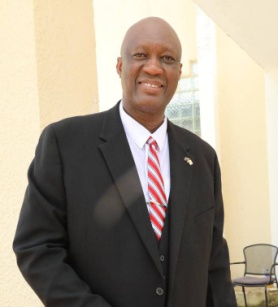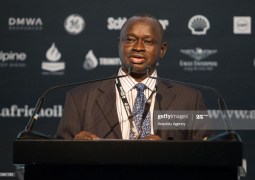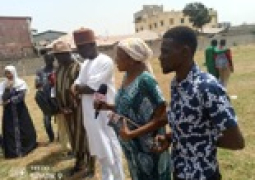
The GRA Chief also revealed that the government collects over D5 billion every year from value added tax since the intervention of Dr Njogou Bah during the former regime, and that the Government collected over D400 million from tobacco excise taxes in 2023.
GRA award for Dr Njogou Bah VAT Tax reforms
In an exclusive interview with Peter Gomez on West Coast Radio’s Coffee Time on 3rd September 2024, GRA Chief Darboe praised Dr Njogou Bah who was banned by the Janneh Commission but recycled in the current administration of President Adama Barrow.
According to President Barrow’s Cabinet White Paper on the Janneh Commission, Dr Njogou Bah, who served as the Secretary General of the former regime until 2013 when he was dismissed, should have been “banned from holding public office for the remainder of his life”. The Janneh Commission also “banned [him] from holding any director positions in any State-Owned Enterprises in The Gambia for ten (10) years”. After the 2019 ban, the same government reversed its decision in March 2024, and appointed Dr Njogou Bah as the Director of the Public Utilities Regulatory Authority [PURA].
However, Dr Bah had his positive sides, according to the GRA Commissioner, he deserves commendation and even an award for his role in convincing former President Yahya Jammeh to authorise new value added tax reforms. According to Darboe, the tax reforms resulted in the government collecting over D5 billion on a yearly basis from value added tax alone.
Tobacco Tax Reforms Result in D400 million in 2023
The Gambia’s Man of the Year, awarded to him by Standard Newspaper and The Fatu Network Heroes Awards, continues to win more awards as he explains how much money his institution has collected for the Government in 2024.
According to Mr Darboe, he was awarded by the World Health Organisation [WHO] for his remarkable contribution to tobacco control in The Gambia. During his interview, he revealed that he has made some changes on tobacco excise taxes in The Gambia since 2012, which has reduced the importation level and increased revenue collection.
The GRA Chief explained that since “2013 we had two major reforms in The Gambia. One was in the change of tobacco taxation and the other one was VAT. Before 2013 we used to do taxation by weight”.
After consultation with the Ministry of Health and WHO, GRA decided to charge by bag instead. After satisfying themselves and receiving approval from the Ministry of Finance, the reforms were implemented resulting in a 50% reduction in the importation of tobacco and an increase on tobacco excise taxes.
According to Commissioner Darboe, in “2012 the amount we collected [was] about D148 million only on tobacco [excise taxes]. Compared to 2013 it went up to D253 million. So, as we go on we keep increasing the excise tax on the tobacco up to a period of more than 5 years. Every year we put a little amount there. As we speak today, we have collected over D400 million last year only on tobacco”.
Commissioner Darboe revealed that “now the importation [of tobacco] has reduced by not only 50%, maybe almost 75%”.
Over D13.8 Billion Raised in Taxes End of August 2024
Speaking on the amount of taxes raised in 2024, Darboe revealed that “up to the end of August 2024, [GRA has] collected D13.8 billion”. With just over 66% of the year elapsed by the end of August 2024, GRA has collected over 71% of its revenue target.
In addition to this, the GRA Chief explained that there is a remainder with “a balance D5.3 billion to collect by the end of December 2024.” This means that GRA is to collect an average of D1.4 billion each month to reach their target.
Currently the GRA’s average monthly collection for 2024 stands at D1.7 billion per month, meaning that they should be on track to collect the remaining amount to meet their 2024 target of D19.2 billion.
(Askanwi)




